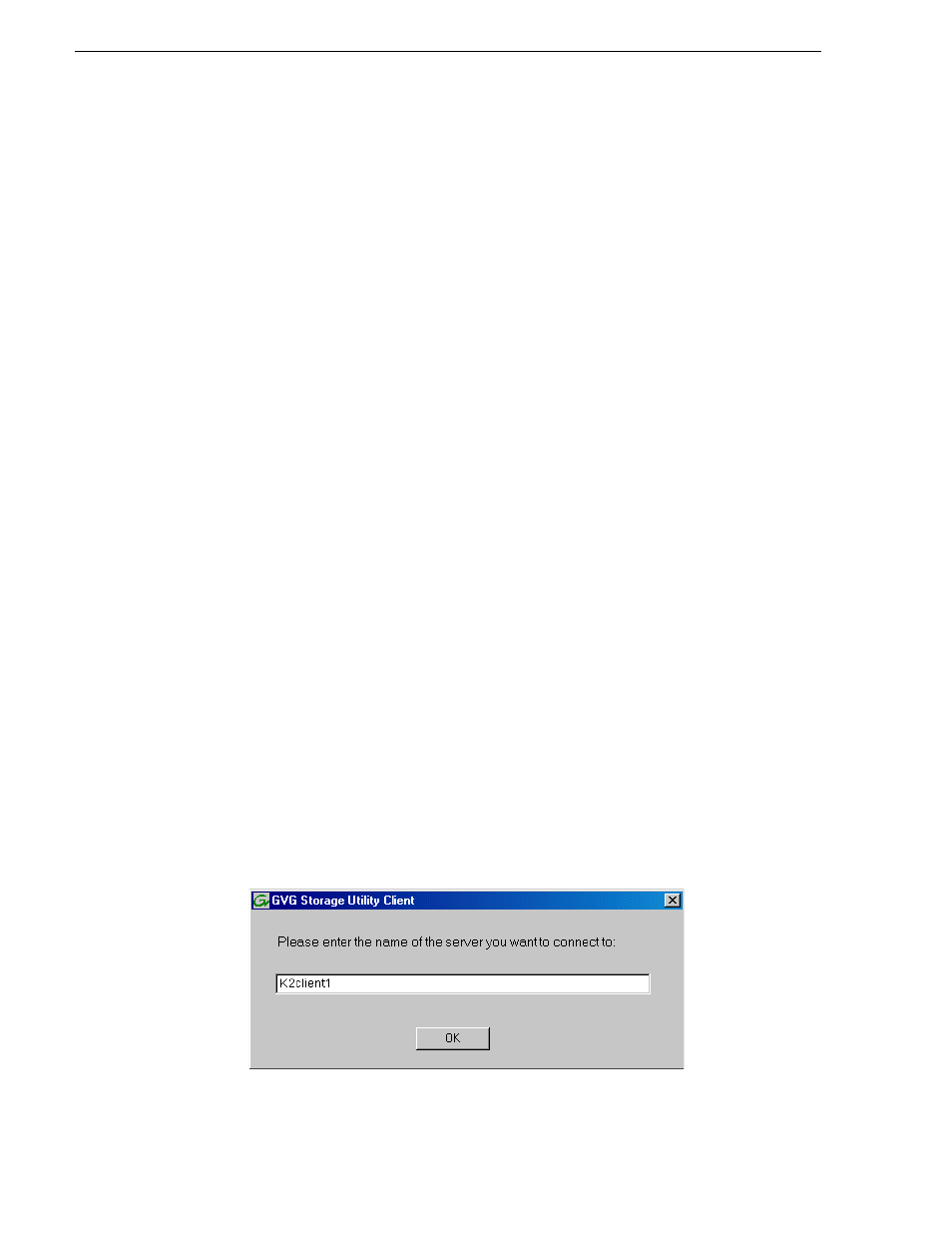Opening storage utility independently – Grass Valley K2 Media Client System Guide v.3.3 User Manual
Page 114

114
K2 Media Client System Guide
June 9, 2009
Chapter 4 Managing Internal Storage
1. Open AppCenter, either on the local K2 Media Client or on the control point PC
and logon.
Make sure you logon to AppCenter with appropriate privileges, as this logon is
passed to Storage Utility. Administrator-level permission is necessary for most
Storage Utility operations. If you log in with user-level permissions, the Storage
Utility menu item is disabled.
2. If you are running AppCenter from a control point PC and you have channels from
multiple K2 Media Clients in your channel suite, select a channel from the
stand-alone K2 Media Client whose storage you intend to configure with Storage
Utility. This is important as Storage Utility automatically connects to the K2 Media
Client that hosts the currently selected channel.
NOTE: Make sure you are connecting to a stand-alone K2 Media Client. You
should never connect Storage Utility directly to a K2 Media Client that uses shared
(SAN) storage.
3. From the AppCenter
System
menu, select
Storage Utility
.
Storage Utility opens.
4. If you are connecting from a control point PC, you should verify that you are
connected to the correct K2 Media Client. To verify this, use the Identify feature to
flash the disks on the K2 Media Client. Refer to
“Identifying disks” on page 117
.
Opening Storage Utility Independently
Do not open Storage Utility independently unless there is a problem that prevents you
from opening it through AppCenter.
To open Storage Utility independently, do the following:
1. Open the Storage Utility shortcut on the Windows desktop or from the Windows
Start Menu at
Programs | Grass Valley | Storage Utility
.
A dialog box opens in which you specify the machine to connect to with Storage
Utility.
NOTE: Make sure you are connecting to a stand-alone K2 Media Client. You
should never connect Storage Utility directly to a K2 Media Client that uses shared
storage.
2. Enter the name or IP address of the K2 Media Client for which you intend to use
